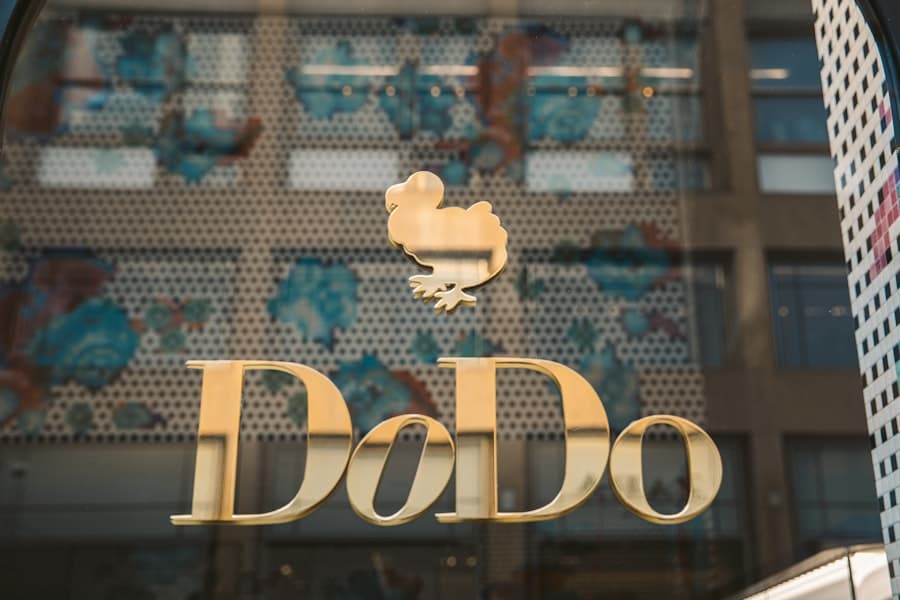Decentralized Autonomous Organizations (DAOs) have emerged as a revolutionary concept in the realm of digital finance and governance, particularly in the context of investment clubs. A DAO-based investment club is essentially a collective of individuals who pool their resources to make investment decisions, governed by smart contracts on a blockchain. This structure allows for a transparent, democratic approach to investing, where each member has a say in the decision-making process, often proportional to their stake in the organization.
Unlike traditional investment clubs, which may rely on a central authority or a few key decision-makers, DAO-based clubs distribute power among all members, fostering a sense of community and shared responsibility. The operational framework of a DAO-based investment club is underpinned by blockchain technology, which ensures that all transactions and decisions are recorded immutably. Members typically hold governance tokens that grant them voting rights on various proposals, such as which assets to invest in or how to allocate funds.
This model not only democratizes investment decisions but also enhances accountability, as all actions taken by the DAO are visible on the blockchain. The rise of DAO-based investment clubs reflects a broader trend towards decentralization in finance, where individuals seek more control over their investments and a more equitable distribution of power.
Key Takeaways
- DAO-Based Investment Clubs are decentralized autonomous organizations that allow individuals to pool their resources and make collective investment decisions using blockchain technology.
- The benefits of DAO-Based Investment Clubs include increased transparency, lower costs, and greater access to investment opportunities for a wider range of participants.
- However, challenges such as regulatory uncertainty, governance issues, and potential security risks need to be addressed for the successful operation of DAO-Based Investment Clubs.
- Technology, such as smart contracts and decentralized governance platforms, will play a crucial role in shaping the future of DAO-Based Investment Clubs and improving their efficiency and security.
- DAO-Based Investment Clubs have the potential to disrupt traditional investment models by offering a more inclusive and democratic approach to investment decision-making, potentially leading to a shift in the power dynamics of the investment industry.
The Benefits of DAO-Based Investment Clubs
Democratizing Investment Opportunities
Traditional investment clubs often require significant capital contributions and may be limited to affluent individuals or those with specific connections. In contrast, DAO-based clubs can lower the barriers to entry, allowing a diverse range of participants to engage in collective investing.
Fostering a Richer Exchange of Ideas
This inclusivity not only broadens the pool of potential investors but also fosters a richer exchange of ideas and strategies, as members from various backgrounds contribute their unique perspectives. Moreover, the transparency inherent in blockchain technology enhances trust among members.
Enhanced Transparency and Automation
Every transaction and decision made within the DAO is recorded on the blockchain, providing an auditable trail that can be reviewed by all participants. This level of transparency mitigates concerns about mismanagement or fraud, which can plague traditional investment clubs where information may be selectively shared or obscured. Additionally, the use of smart contracts automates many processes, reducing administrative burdens and allowing members to focus on strategic decision-making rather than logistical concerns.
The Challenges of DAO-Based Investment Clubs

Despite their numerous advantages, DAO-based investment clubs face several challenges that can hinder their effectiveness and growth. One significant issue is the complexity of governance structures. While decentralization is a core principle of DAOs, it can lead to decision-making paralysis if not managed effectively.
With many voices contributing to discussions and votes, reaching consensus on critical investment decisions can be time-consuming and contentious. This challenge is exacerbated when members have differing levels of expertise or investment philosophies, potentially leading to conflicts that can stall progress. Another challenge lies in the regulatory landscape surrounding DAOs and cryptocurrency investments.
Many jurisdictions have yet to establish clear guidelines for how DAOs should operate, which can create uncertainty for members regarding their legal obligations and protections.
Furthermore, issues related to taxation and compliance with securities laws can complicate the operations of DAO-based investment clubs, as members navigate a patchwork of regulations that vary significantly from one region to another.
The Role of Technology in the Future of DAO-Based Investment Clubs
Technology plays a pivotal role in shaping the future of DAO-based investment clubs, particularly through advancements in blockchain and smart contract capabilities. As these technologies continue to evolve, they will enable more sophisticated governance models and enhance the functionality of DAOs.
This capability would not only enhance investment opportunities but also mitigate risks associated with market volatility. Additionally, the integration of artificial intelligence (AI) and machine learning into DAO operations could revolutionize decision-making processes. By analyzing vast amounts of data and identifying trends, AI tools could provide valuable insights that inform investment strategies.
For example, predictive analytics could help members assess the potential performance of various assets based on historical data and market conditions. This technological synergy could empower DAO-based investment clubs to make more informed decisions while maintaining their decentralized ethos.
The Impact of DAO-Based Investment Clubs on Traditional Investment Models
The emergence of DAO-based investment clubs is poised to disrupt traditional investment models significantly. By offering a decentralized alternative to conventional investment vehicles, DAOs challenge the status quo of centralized financial institutions and fund management firms. This shift could lead to increased competition in the financial sector, prompting traditional players to innovate and adapt their offerings to retain clients who are increasingly drawn to the transparency and inclusivity of DAOs.
Moreover, as more individuals participate in DAO-based investment clubs, there is potential for a cultural shift in how people perceive investing. The collaborative nature of DAOs encourages knowledge sharing and community engagement, fostering a more informed investor base that values collective decision-making over individual speculation. This change could lead to a more sustainable approach to investing, where long-term strategies are prioritized over short-term gains, ultimately benefiting both investors and the broader economy.
Regulatory Considerations for DAO-Based Investment Clubs

Navigating the regulatory landscape is one of the most pressing challenges facing DAO-based investment clubs. As these organizations operate at the intersection of technology and finance, they must contend with existing laws that may not adequately address their unique structure and operations. For instance, questions surrounding the classification of governance tokens—whether they are considered securities—can have significant implications for how DAOs are regulated.
In some jurisdictions, failing to comply with securities laws could expose members to legal liabilities. Furthermore, anti-money laundering (AML) and know-your-customer (KYC) regulations present additional hurdles for DAO-based investment clubs. Many DAOs prioritize anonymity and decentralization, which can conflict with regulatory requirements aimed at preventing illicit activities.
Striking a balance between maintaining the core principles of decentralization while adhering to regulatory standards will be crucial for the long-term viability of these organizations. As regulators around the world begin to take notice of DAOs, it will be essential for these investment clubs to engage proactively with policymakers to shape a regulatory framework that supports innovation while ensuring investor protection.
The Potential for Growth and Expansion of DAO-Based Investment Clubs
The potential for growth and expansion within the realm of DAO-based investment clubs is substantial. As awareness of decentralized finance (DeFi) continues to rise, more individuals are likely to seek out alternative investment opportunities that align with their values and preferences. The ability to participate in a community-driven investment model appeals particularly to younger generations who prioritize transparency and social responsibility in their financial decisions.
Moreover, as technology continues to advance, new tools and platforms will emerge that facilitate the creation and management of DAO-based investment clubs. These innovations could streamline onboarding processes for new members, enhance communication channels within DAOs, and provide sophisticated analytics tools for better decision-making. As these platforms become more user-friendly and accessible, they will likely attract a broader audience, further fueling the growth of DAO-based investment clubs.
The Future Outlook for DAO-Based Investment Clubs
Looking ahead, the future outlook for DAO-based investment clubs appears promising yet complex. As they gain traction within the broader financial ecosystem, these organizations will need to navigate an evolving landscape marked by technological advancements and regulatory developments. The success of DAO-based investment clubs will depend on their ability to adapt to changing market conditions while remaining true to their decentralized principles.
Furthermore, as more individuals recognize the benefits of collective investing through DAOs, we may witness an increase in hybrid models that combine elements of traditional investing with decentralized governance structures. These hybrid approaches could offer investors greater flexibility while still promoting community engagement and shared decision-making. Ultimately, the trajectory of DAO-based investment clubs will be shaped by ongoing innovations in technology, shifts in investor behavior, and the evolving regulatory environment—factors that will collectively define the future of decentralized finance as a whole.
If you are interested in exploring the potential of cutting-edge technology, you may want to check out the article Tesla Refutes Elon Musk’s Timeline on Full Self-Driving. This article delves into the latest developments in autonomous driving technology and the challenges faced by companies like Tesla in achieving full self-driving capabilities. It offers valuable insights into the future of transportation and the impact of AI on our daily lives.
FAQs
What is a DAO-based investment club?
A DAO-based investment club is a decentralized autonomous organization that allows members to pool their resources and make collective investment decisions using smart contracts and blockchain technology.
How does a DAO-based investment club work?
Members of a DAO-based investment club use a decentralized platform to propose, vote on, and execute investment decisions. Smart contracts automatically execute the decisions once they are approved by the majority of members.
What are the benefits of a DAO-based investment club?
Some benefits of a DAO-based investment club include transparency, security, and the ability for members to have direct control over their investments without the need for intermediaries.
What are the potential risks of participating in a DAO-based investment club?
Potential risks of participating in a DAO-based investment club include smart contract vulnerabilities, regulatory uncertainty, and the lack of traditional investor protections.
How is governance handled in a DAO-based investment club?
Governance in a DAO-based investment club is typically handled through a voting system, where members can propose and vote on investment decisions, as well as changes to the club’s structure and rules.
What is the future outlook for DAO-based investment clubs?
The future outlook for DAO-based investment clubs is promising, as they offer a new way for individuals to collectively invest and manage their assets in a decentralized and transparent manner. However, regulatory developments and technological advancements will likely shape their evolution.

